Sustainable Gardening
Explore sustainable gardening practices that promote environmental health and enhance your garden's productivity.
Sustainable gardening is an approach that emphasizes eco-friendly practices, resource conservation, and enhancing biodiversity. With climate change and environmental degradation posing serious challenges, adopting sustainable gardening practices can contribute positively to our planet’s health. Here’s a comprehensive overview of what sustainable gardening entails and how you can incorporate it into your lifestyle.
Understanding Sustainable Gardening
At its core, sustainable gardening is all about creating a balanced and resilient ecosystem. It focuses on minimizing environmental impact while maximizing garden productivity and health. This doesn’t necessarily mean giving up on your aesthetic ideals but rather working with nature to achieve them.
Principles of Sustainable Gardening
-
Soil Health: Soil is the foundation of any garden. Maintaining healthy soil involves practices such as composting, crop rotation, and using organic mulch. These methods help improve soil structure, water retention, and nutrient content.
-
Water Conservation: Sustainable gardeners use water wisely. Collecting rainwater and utilizing drip irrigation systems can significantly reduce water usage. Mulching and choosing drought-resistant plants also play important roles in conserving water.
-
Biodiversity: Encouraging a diverse range of plant species creates resilient and thriving garden ecosystems. Companion planting, which involves growing plants that benefit each other’s growth, is a great technique to increase biodiversity and reduce the need for chemical pesticides.
-
Native Plants: Incorporating native plants in your garden is beneficial as they are adapted to the local climate and require less maintenance. They also provide essential habitats for local wildlife.
Practical Steps to Implement Sustainable Gardening
Composting
Composting is a simple process where organic waste is broken down into nutrient-rich soil conditioner. Kitchen scraps, garden waste, and even cardboard can be composted. A study by Cornell University has shown that composting can improve soil quality and reduce organic waste’s environmental impact.
Integrated Pest Management (IPM)
Instead of relying on synthetic pesticides, IPM focuses on preventing pest problems by promoting healthy plant growth and using biological controls like beneficial insects. This method reduces the risk of environmental pollution and helps maintain ecological balance.
For example, planting marigolds can deter nematodes, while bees and other pollinators benefit from varieties like lavender.
Mulching
Using organic mulch—such as wood chips or straw—helps retain moisture, suppress weeds, and enrich the soil as it decomposes. It also provides a habitat for beneficial microorganisms.
Water-Saving Techniques
Using rain barrels to collect water for your garden is a straightforward way to conserve this precious resource. An easy-to-install drip irrigation system can deliver water directly to the plant roots, minimizing evaporation and runoff.
Benefits of Sustainable Gardening
Choosing to garden sustainably has numerous advantages beyond environmental stewardship. It can reduce gardening costs since you’ll need fewer fertilizers and pesticides. It also enhances the health of the plants and improves yield quality if you’re growing edibles.
Engaging with nature through gardening can be therapeutic and provide a sense of accomplishment. Studies have suggested that spending time in green spaces can positively impact mental health.
Resources and Further Reading
To learn more about sustainable gardening, check out these resources:
-
The Rodale Institute: Offers research-driven information on regenerative organic agriculture.
-
“Teaming with Microbes: The Organic Gardener’s Guide to the Soil Food Web” by Jeff Lowenfels and Wayne Lewis is an excellent book on understanding the connections between microorganisms and plant health.
Sustainable gardening is a journey of connecting with your environment and making conscious choices that benefit both your garden and the planet. By implementing these practices, you’ll not just be nurturing a beautiful garden but also contributing positively to the environment’s health. Remember, small steps can lead to significant impacts over time.
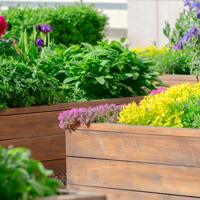
Discover the basics of edible gardening, from planting to sustainability, and learn how to cultivate your own fresh produce.
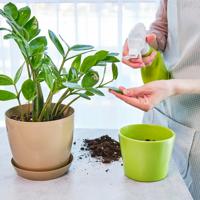
Explore the gentle journey of indoor gardening, bringing sustainability and beauty into your living space with easy-to-care-for plants.

Discover the principles of permaculture gardening and how they can enhance your sustainable gardening practices.
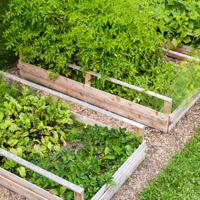
Learn how to design a permaculture garden that works harmoniously with nature while providing food and beauty.
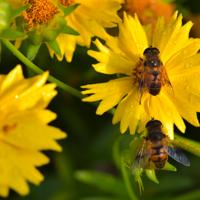
Learn how to attract beneficial insects that support a healthy garden ecosystem and manage pests naturally.
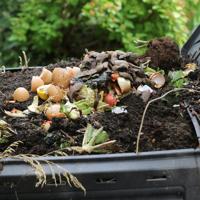
Learn the essentials of composting to improve soil health and support your garden's growth.
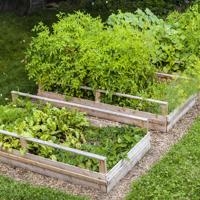
Explore essential tools and equipment to enhance your gardening experience while promoting sustainability.
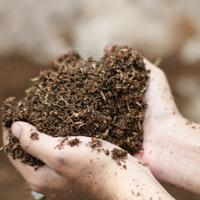
Discover gentle methods to enrich your soil naturally and support your sustainable gardening journey.